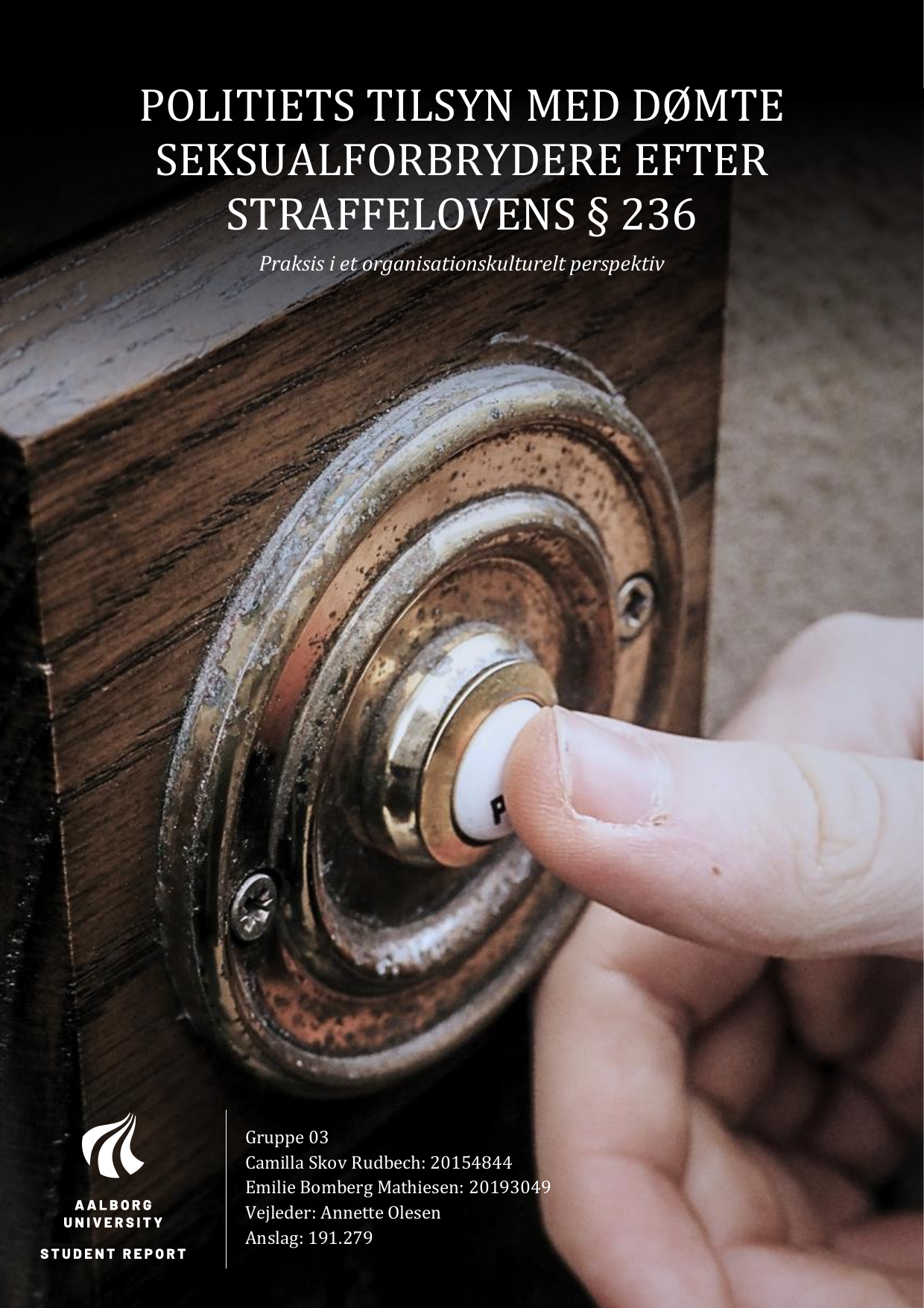
Politiets tilsyn med dømte seksualforbrydere efter straffelovens § 236 - Praksis i et organisationskulturelt perspektiv
Oversat titel
Danish Police's Supervision of Convicted Sex Offenders under the Penal Code § 236 - Practice in an Organisational Cultural Perspective
Forfattere
Semester
4. semester
Uddannelse
Udgivelsesår
2024
Afleveret
2024-06-10
Antal sider
89
Abstract
Following a change in criminal law, the Danish police have been given a new role in supervising convicted sex offenders, which leads the police officers into a closer and lasting professional contact with convicted sex offenders. This reflects a larger trend, firstly, for the police to embrace new types of police work, and secondly, that legislation, particularly regarding sex offenders, is driven by fear, leading to increasingly stricter laws in this area. This thesis examines how the police manage their new task and how police organisational culture is reflected in this practice. Using a socio-legal approach, this study is based on 13 interviews with supervising officers and coordinators from seven Danish police districts, supplemented by quantitative data and legislative sources. The thesis concludes that police supervision tasks are characterised by both organisational challenges and a culture striving to balance control and prevention. There are significant variations in practice across police districts, indicating a need for more standardized procedures and further research into the effectiveness of supervision.
Following a change in criminal law, the Danish police have been given a new role in supervising convicted sex offenders, which leads the police officers into a closer and lasting professional contact with convicted sex offenders. This reflects a larger trend, firstly, for the police to embrace new types of police work, and secondly, that legislation, particularly regarding sex offenders, is driven by fear, leading to increasingly stricter laws in this area. This thesis examines how the police manage their new task and how police organisational culture is reflected in this practice. Using a socio-legal approach, this study is based on 13 interviews with supervising officers and coordinators from seven Danish police districts, supplemented by quantitative data and legislative sources. The thesis concludes that police supervision tasks are characterised by both organisational challenges and a culture striving to balance control and prevention. There are significant variations in practice across police districts, indicating a need for more standardized procedures and further research into the effectiveness of supervision.
